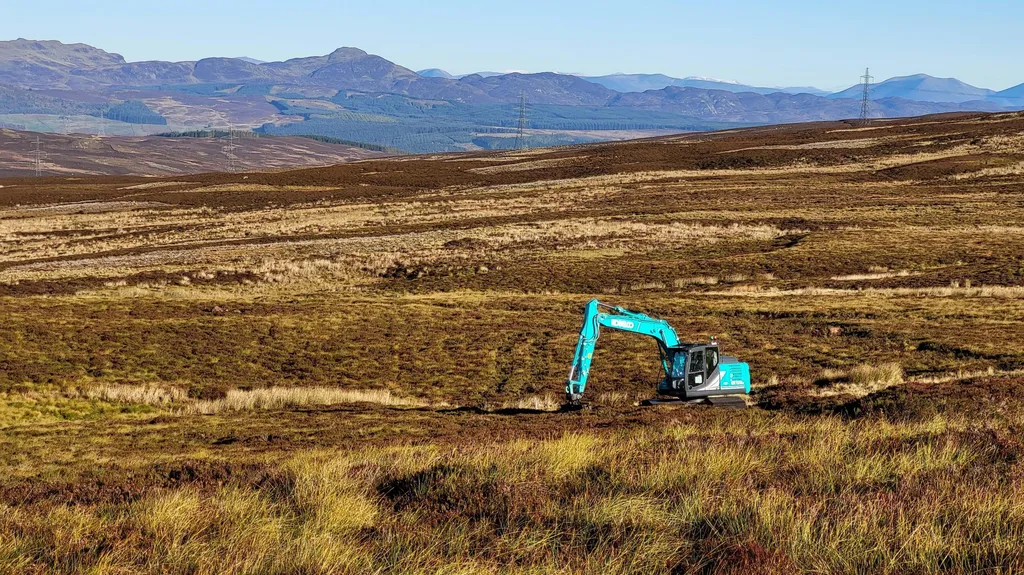In the heart of the UK, researchers at Bangor University have uncovered a promising strategy to restore degraded agricultural peatlands, a discovery that could significantly impact the energy sector’s pursuit of sustainable practices. Led by Peduruhewa H. Jeewani from the School of Environmental and Natural Sciences, the study published in the journal *Biochar* (which translates to “charcoal” in English) explores the synergistic effects of rewetting, biochar, and iron sulphate on microbial hotspots and carbon storage.
Peatlands, vital ecosystems for carbon storage, have been widely drained and converted for agricultural use, leading to degradation and diminished carbon sequestration capacity. Jeewani and her team aimed to examine the combined benefits of altering water table depth and adding organic and inorganic materials to accelerate peat formation and carbon accrual.
The experiment, conducted over a year using outdoor agricultural peat mesocosms, revealed that a high-water table combined with biochar and iron sulphate (FeSO4) addition was the most effective at suppressing enzyme activity, methanogen activity, and peat mineralization rate. “We found that Miscanthus biochar was particularly effective in preserving peat carbon,” Jeewani explained. “The relative effectiveness of the amendments followed the series: Miscanthus biochar, Miscanthus residues, biosolids, cereal straw, and paper waste.”
The study’s findings suggest that the mechanisms behind these results are both abiotic and biotic. Abiotic factors affect soil organic carbon (SOC) solubility through changes in redox conditions and iron-carbon interactions, while biotic factors involve shifts in microbial community and enzyme activities. “FeSO4 increased the iron-bound carbon content in the non-rewetted treatment, supporting the ‘iron gate’ mechanism for carbon preservation,” Jeewani noted.
The implications for the energy sector are substantial. Restoring peatlands’ carbon storage capacity can enhance carbon sequestration, mitigating climate change impacts. Additionally, the use of biochar, a product derived from biomass, aligns with the circular economy principles, promoting sustainable agriculture and waste management.
This research paves the way for practical, scalable strategies to restore agricultural peatlands. By implementing biochar and FeSO4 amendments alongside water table management, the energy sector can contribute to sustainable land use practices, ultimately supporting long-term environmental and economic goals. As Jeewani concluded, “Our findings provide evidence for the potential of these strategies to enhance carbon preservation in degraded peatlands, offering a promising avenue for future research and application.”

